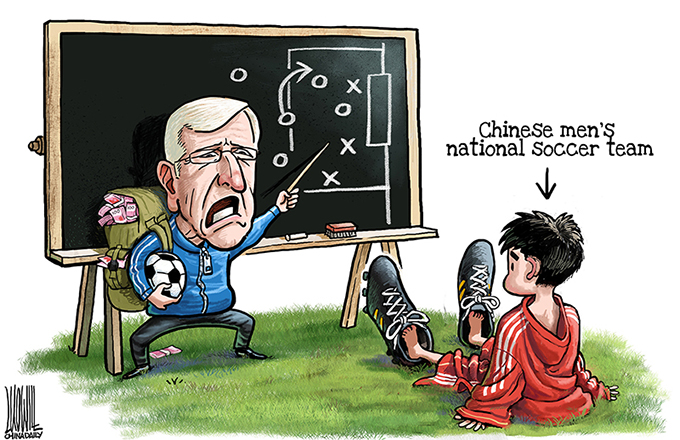Authorities should take lead in pollution control
It is necessary to call to account whoever goes against orders to ease air pollution. To turn a gray sky into a blue one, authorities need to exhibit strong commitment and down-to-earth enforcement to reduce Beijing's air pollution, says an editorial of the Beijing Times.
Excerpts:
Followed by another spell of smog smothering Beijing, local authorities launched an emergency response to alleviate pollution, including ordering 30 percent of government cars off the roads.
However, it was found that 875 government vehicles in Beijing turned a deaf ear to the order and went onto the roads during murky days.
Xinhua News Agency found that not a single authority or government organization would reveal the number of their official cars that went on road and the corresponding license plates.
It is the responsibility of governments to combat air pollution and thereby the necessity for authorities of all levels to implement relevant regulations.
It is through government sectors taking the lead in doing so that paves the way for society to follow the orders. Otherwise, any response to pollution control only exists in name.
Statistics show that only five days in January were free from haze and smog in Beijing. The poor air quality spoils Beijing's image and endangers people's lives. To improve air quality is everyone's demand.
Yet more than 800 government vehicles disobeying official orders on a highly polluted day betray that enforcement of measures is lax.
The hovering gray air is attributable to many causes, such as vehicle emissions, industrial coal burning and Beijing's geological position. The country faces complex and long-term strategic moves to the cleanup of pollution.
But one important premise is to improve the execution of plans. Otherwise all measures will go down the drain. If government sectors and units themselves fail to fulfill pollution control orders, authorities can hardly mobilize joint efforts from society.























